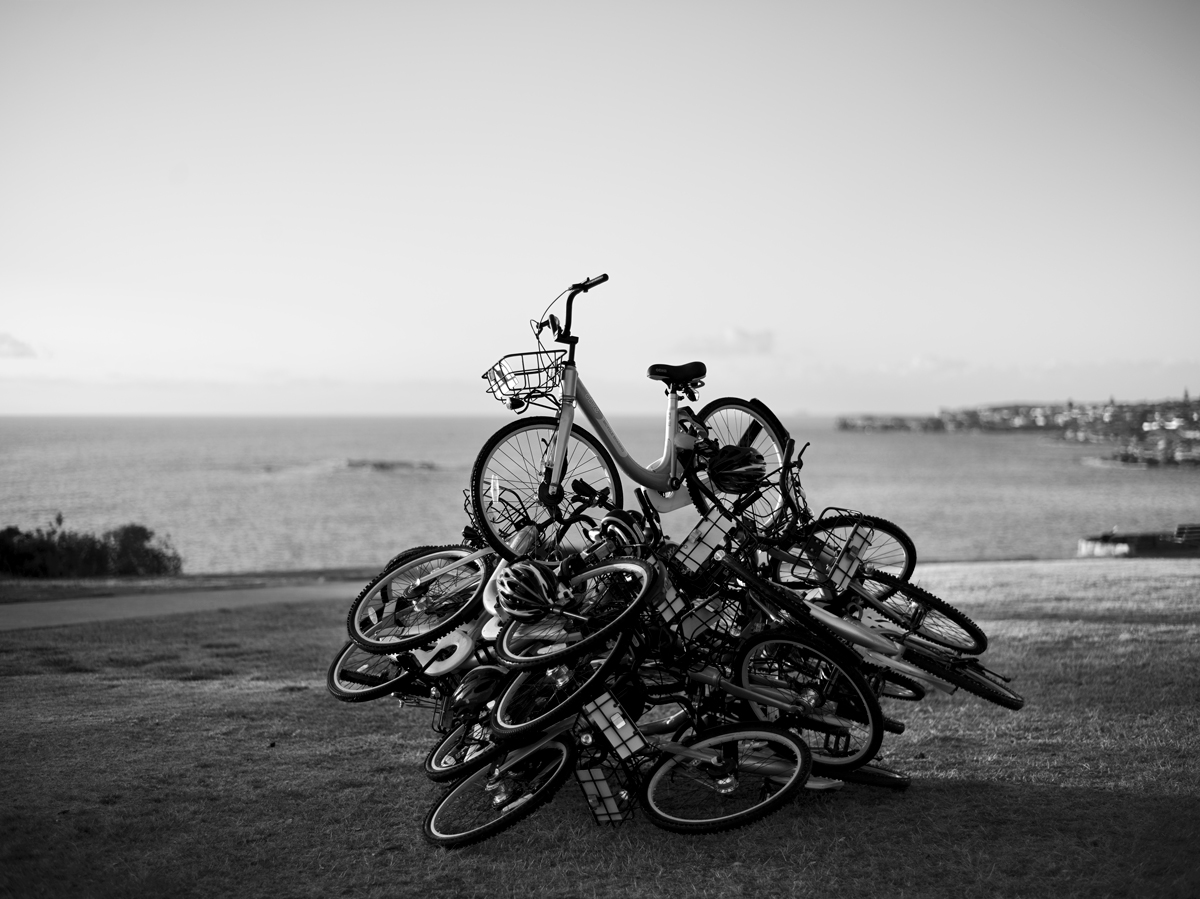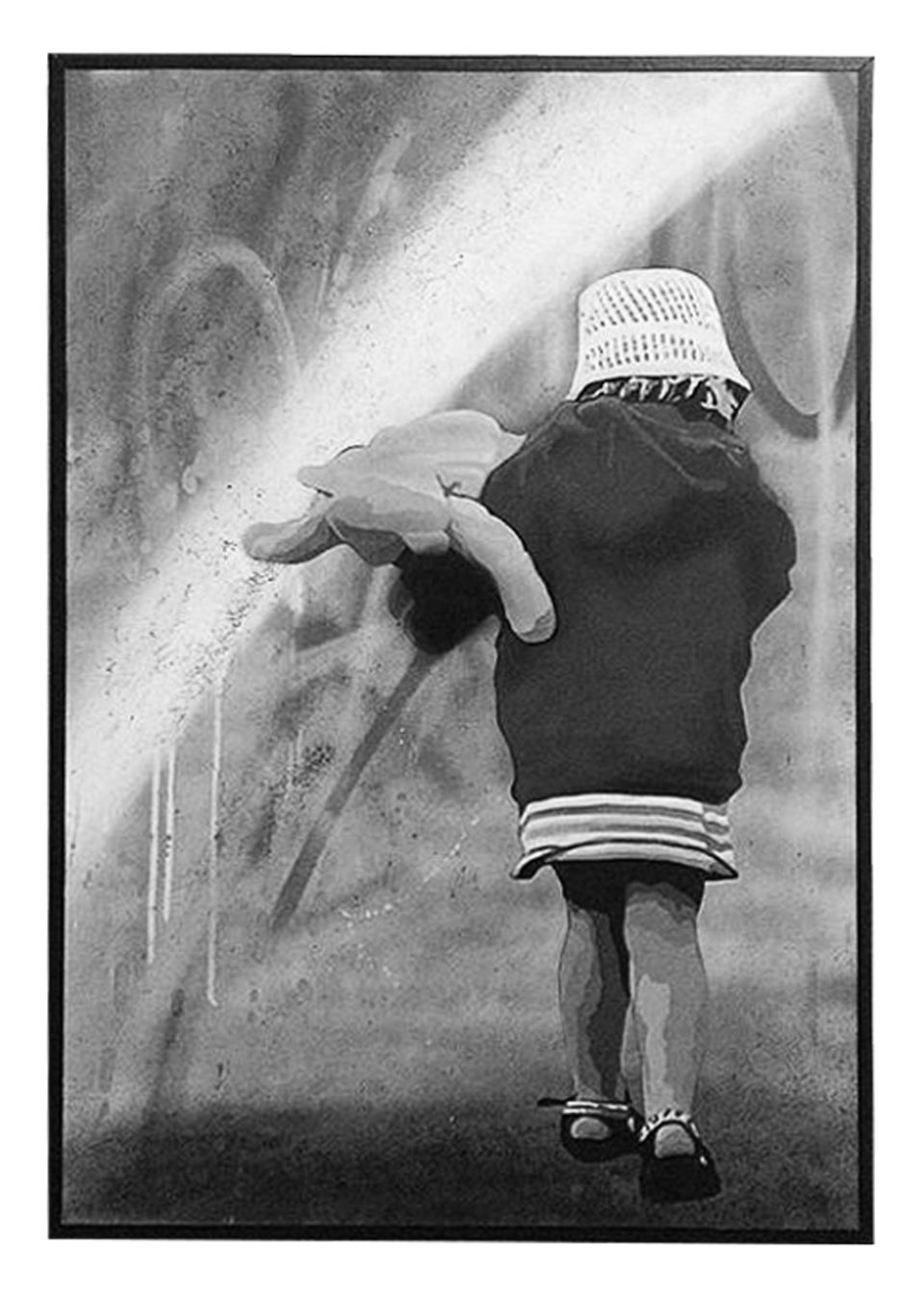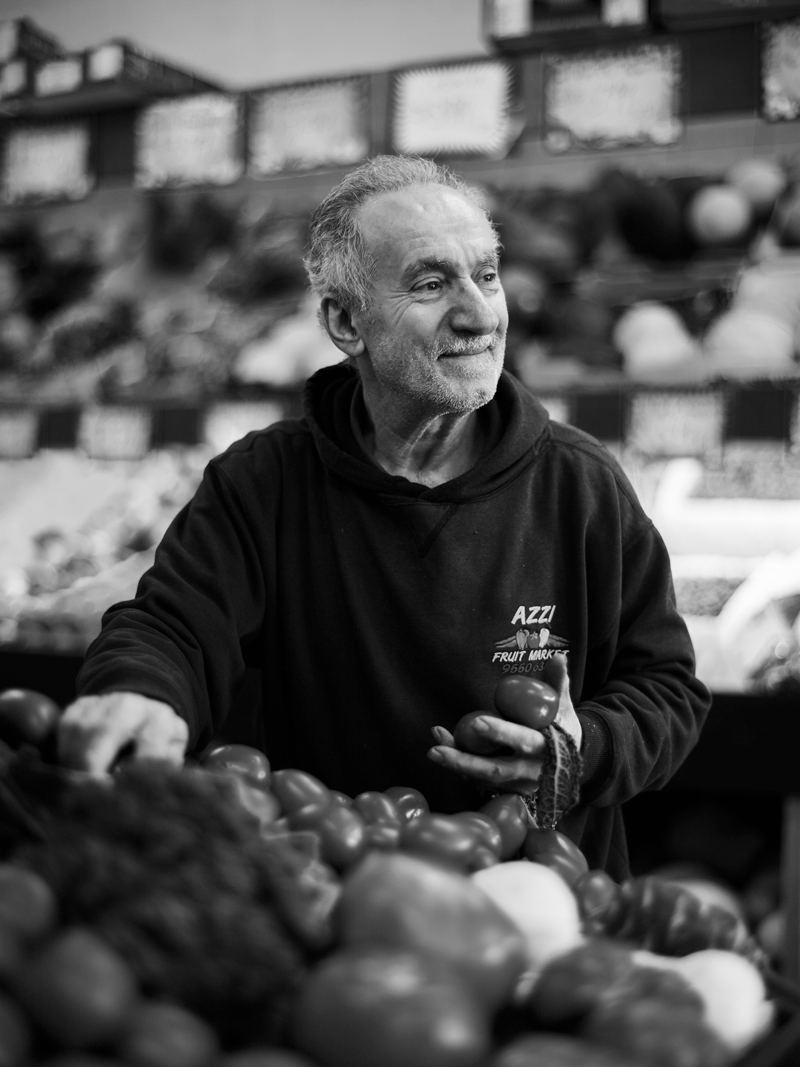The basic principle of sharing is that you don’t break someone else’s toy. Take a look at recent stories of share-bikes being thrown in trees, hurled in rivers, or stacked on top of each other like kindling in a funeral pyre, and it’s easy to think this principle hasn’t been learned.
In the few months since share-bike companies oBike and Reddy-Go released their armadas onto our streets, local councils have been battling complaints over vandalism and public safety, including everything from bikes being parked in obstructive places to people breaking eggs on seats.
But as more stories emerge it seems the issue is not a matter of users knowing how to share the bikes, but the share-bike companies not knowing how to share the space. King Street Cyclery Marrickville staff member Edward Lancaster argues: “You’ve got foreign companies with a good idea – but are they managing it properly?”
The answer, it would seem, is no. Reddy-Go and oBike promise their customers ultimate convenience through a dockless system that lets the share-bikes be parked anywhere bicycles are legally allowed. At the more benign end of the spectrum we see people happily riding share-bikes down the hill to Bondi, but deciding they’d rather catch the return bus than sweat back up the hill. At worst you see Instagram accounts documenting the macabre fates of share bikes, with everything from being stuck with skewers like a voodoo sacrifice to being strung up from a tree like a Christmas bauble.
Former Mayor of Waverley Sally Betts takes another view: “The issue is there’s no control on the suppliers. For example the supplier can decide that the bus-rail interchange at Bondi Junction is the place to go and they can go and dump a hundred bikes [there].” Local councils currently have no legal authority to prevent bike-share companies from leaving their bikes in particular areas. Paradoxically, local rangers are obliged to remove any bikes that are parked in obviously dangerous situations. Waverley and Randwick local councils are considering legislations to impose fines on share-bike companies and give rangers the power to impound bikes left in unsafe places.
Cr Betts says: “Everything in the end comes down to money… the bikes are cheap, [and] the companies don’t have any impetus to do the right thing. It’s like just a get rich quickly scheme, with no care and no responsibility.”
Both oBike and Reddy-Go nonetheless say they employ teams of operational ground staff who maintain the bikes and respond to customer requests to relocate bikes left in unsafe areas.
Lim Chee Ping, Head of oBike Australia, says that oBike is committed to providing an “affordable, eco-friendly and accessible” alternative mode of transport and that each service technician can attend to up to 50 bikes a day.
Reddy-Go offers a similar service, but notes that they have had issues with people consistently leaving bikes in unsafe areas despite repeated attempts by Reddy-Go staff to relocate them.
Customer Service for Reddy-Go says: “We want to clearly differentiate ourselves from our competitor oBike by [providing] a higher quality service, especially in terms of a professional maintenance and relocation management. Our aim is to be recognized by Sydney’s residents as [a] company that is trying their best to provide an excellent service and at the same time address issues and solve problems responsibly.”
As our public transport systems become increasingly strained, and concerns over the environmental and health costs of our reliance on cars grows, share-bikes should be the perfect solution to our health and transport woes. School children are already showing signs of taking advantage of the bikes’ availability and the fun it offers. But as a third share-bike company, ofo, prepares to enter the market, the question of whether private share-bike companies can balance public interest with private profit still needs to be answered in practice.
Reflecting on the way authorities in China have struggled to manage growing piles of damaged share-bikes, Edward Lancaster from King Street Cyclery says, “It’s just a waste. At what point do the benefits of sharing bikes and the environmental benefits of it outweigh the costs and the environmental aspect of throwing them away because they’re just dumped?
“It’s like if you own a car or a bike or any kind of machine; if you own a product you are responsible for that product. If you own a company and you have a fleet of a hundred cars, a hundred motorbikes, a hundred boats, a hundred aircraft, you’re responsible for those items. Aren’t you, at the end of the day? And with this whole sharing thing [the companies] might be trying to say well it’s really the end user, but no. At the end of the day they own the app and they should be responsible for them.”
Sydney has one of the highest concentration of cyclists in the country and continues to invest in cycling infrastructure. But the lesson for Reddy-Go and oBike might be that if they want to share in this valuable (and highly profitable) resource, they have to ensure they don’t end up breaking it in the process.





